Ichiro learned to curse in Spanish, which he can't do in Japanese
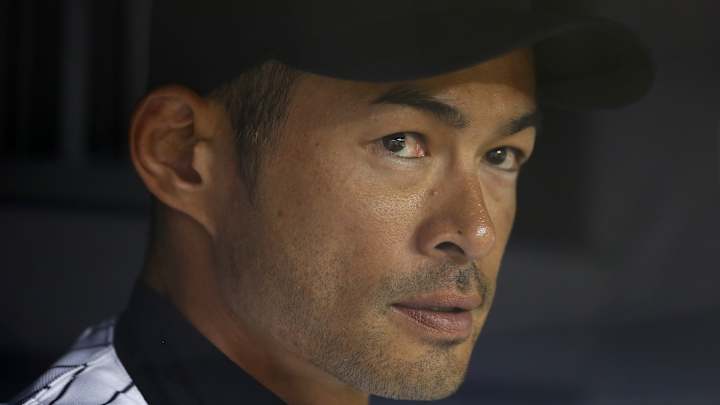
New York Yankees outfielder Ichiro Suzuki is apparently a legendary trash talker -- in Spanish. The Wall Street Journal's Brad Lefton reported on Ichiro's Spanish-speaking skills recently:
Ramon Santiago, the veteran shortstop of the Cincinnati Reds, recalls being startled and amused during his first encounter with Ichiro Suzuki in 2003. Santiago was barely into his first full season with Detroit when Ichiro's Mariners came to town. After a leadoff single to open the game, Ichiro dashed to second on a steal. As he popped up safely from his slide, he looked at Santiago and deadpanned in Spanish, "No corro casi."
Loosely translated, he was telling Santiago, a native of the Dominican Republic, "I don't have my legs today." Before Santiago could stop smiling, Ichiro was stealing third two pitches later on those same heavy legs.
"I knew he always spoke through an interpreter," Santiago said recently. "And that was for English, so of course I never imagined he could speak such nice Spanish."
[...]
Veteran first baseman Carlos Pena remembered one of his frequent encounters with Ichiro. He was defending first for the Tampa Bay Rays, and Ichiro had just arrived on one of his patented infield hits. Ichiro peered over at Pena and asked, "Que coño tu mira?," or, "What the hell are you looking at?" Pena clamped his lips together to prevent the laughter from bursting through.
Ichiro told Lefton he feels like he has a special bond with Latin American players, because they share the status of being foreigners in a new country playing the same game. There was also a plus to learning Spanish for which he can't use his native Japanese.
"We don't really have curse words in Japanese, so I like the fact that the Western languages allow me to say things that I otherwise can't," Ichiro said.
GALLERY: THE TOP 10 MLB PLAYERS FROM JAPAN
Top 10 MLB Players from Japan
No. 1: Ichiro Suzuki
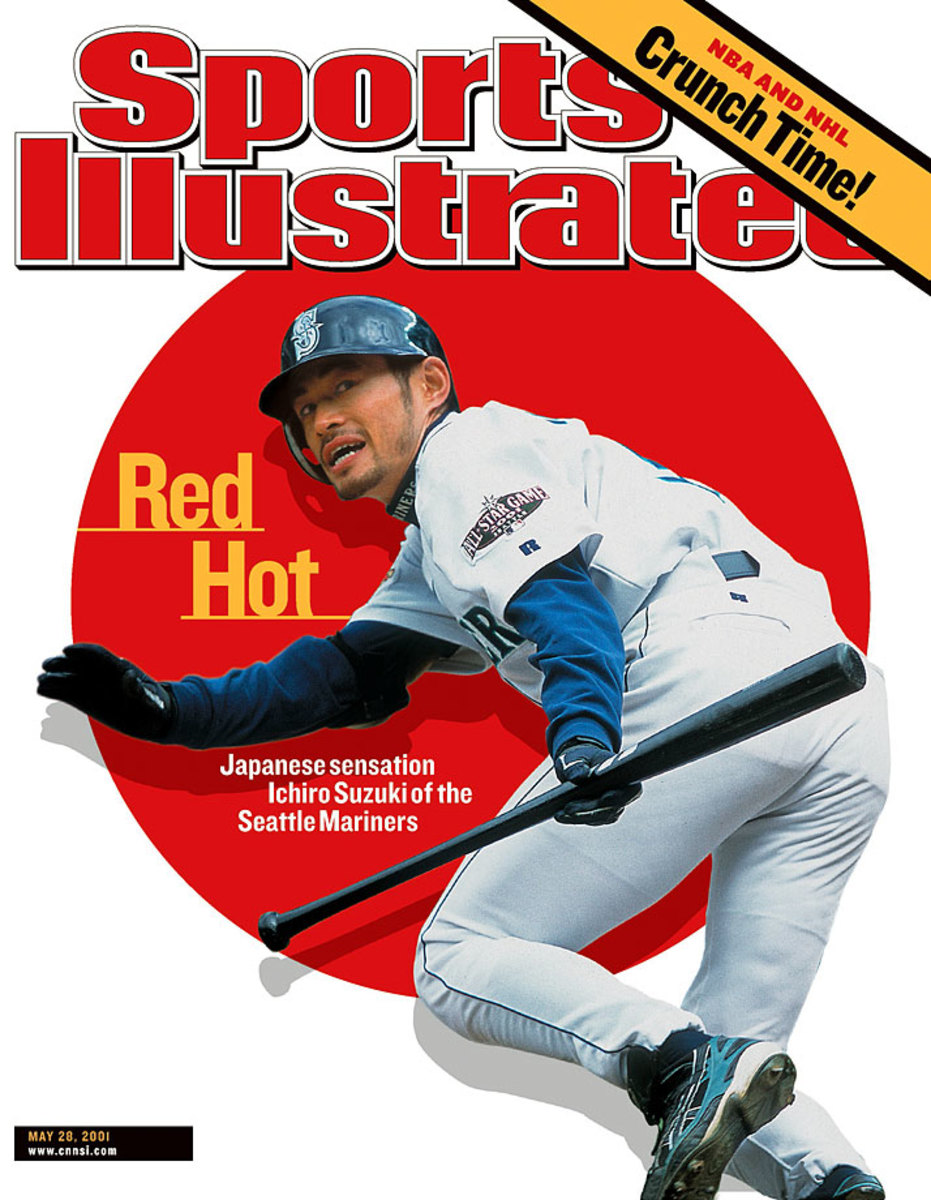
The first Japanese-born position player to play regularly in the majors, the 10-time Gold Glove winner and 10-time All-Star was one of the best hitters and defensive outfielders in the game for a decade. The Mariners paid roughly $13 million in posting fees to negotiate with Ichiro in 2000, and signed him to a three-year, $14 million contract. He promptly became the 2001 AL Rookie of the Year and MVP. He set a single-season record with 262 hits in 2004, his second season as AL batting champ and set a major league record with 10 consecutive seasons of 200 or more hits.
No. 2: Hideki Matsui
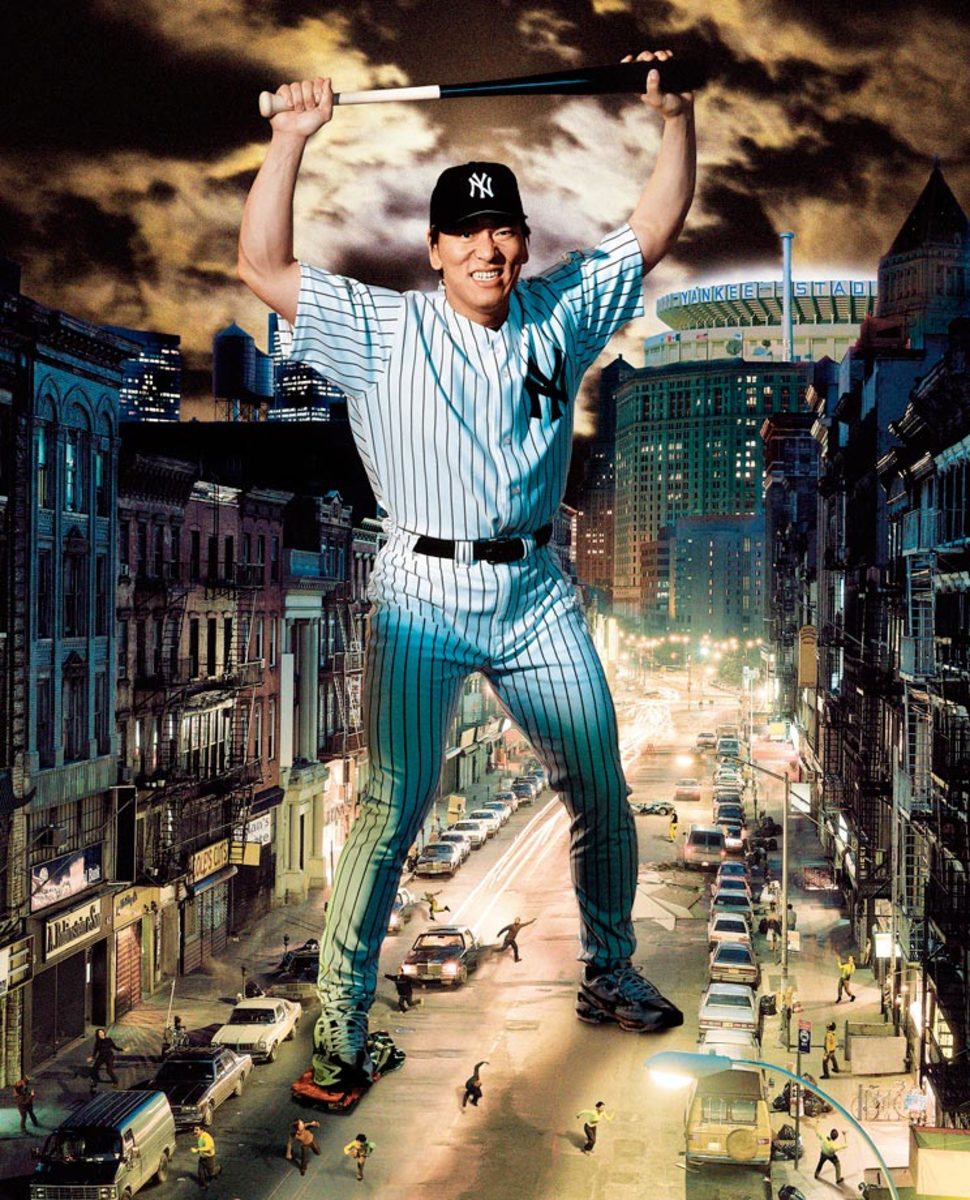
''Godzilla,'' as he was known in Japan, was an unqualified success after signing a three-year, $21 million deal with the Yankees before the 2003 season. Matsui drove in at least 100 runs each of his first three seasons and was the World Series MVP in 2009, his last year with the Yankees before moving on to the Angels for 2010 and the A's for 2011.
No. 3: Hideo Nomo
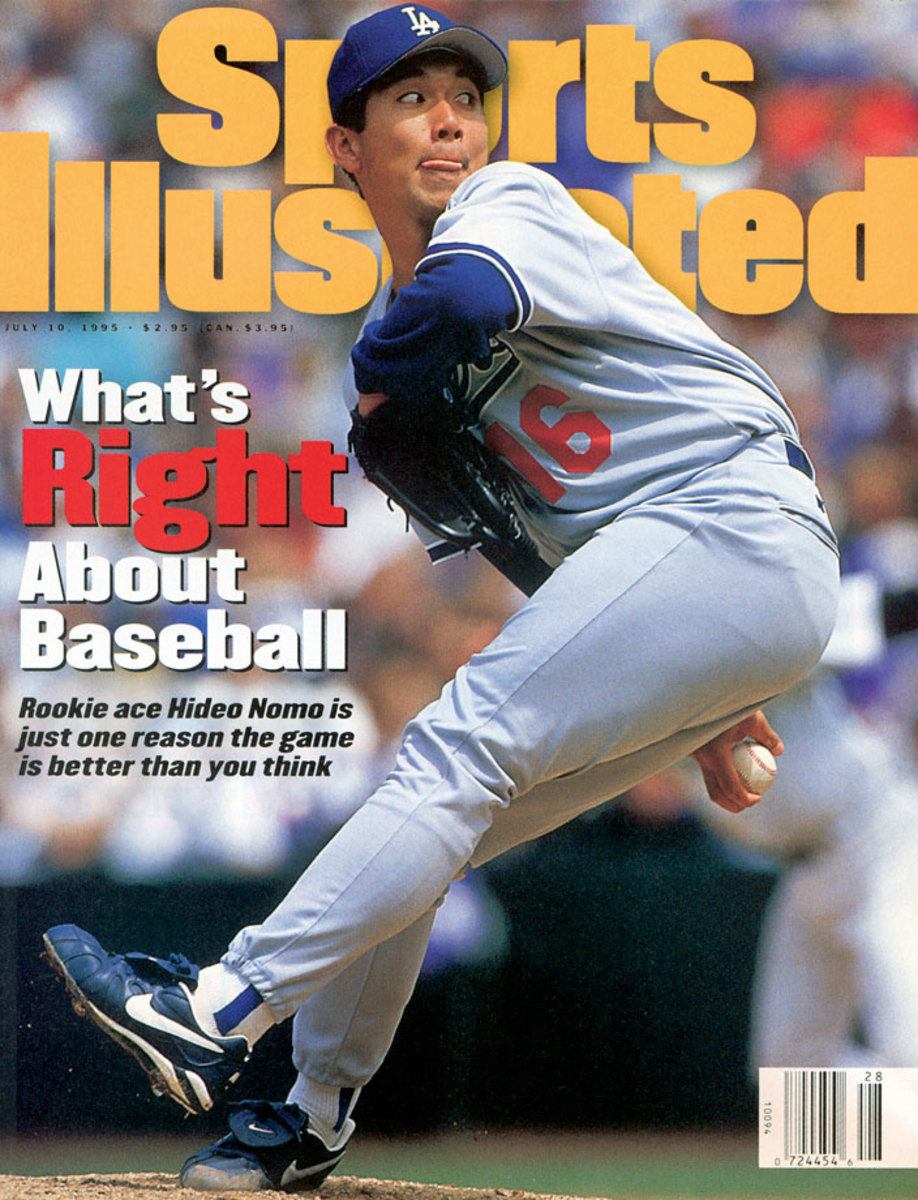
Nomo-Mania had humble beginnings -- the Dodgers brought him over on a minor league contract. Nomo, 26 at the time, had posted a 78-46 record with a 3.15 ERA in five years with the Kintetsu Buffaloes of the Japanese League. He was an instant hit in America, winning 43 games during his first three seasons with Los Angeles and claiming NL Rookie of the Year honors in 1995.
No. 4: Yu Darvish
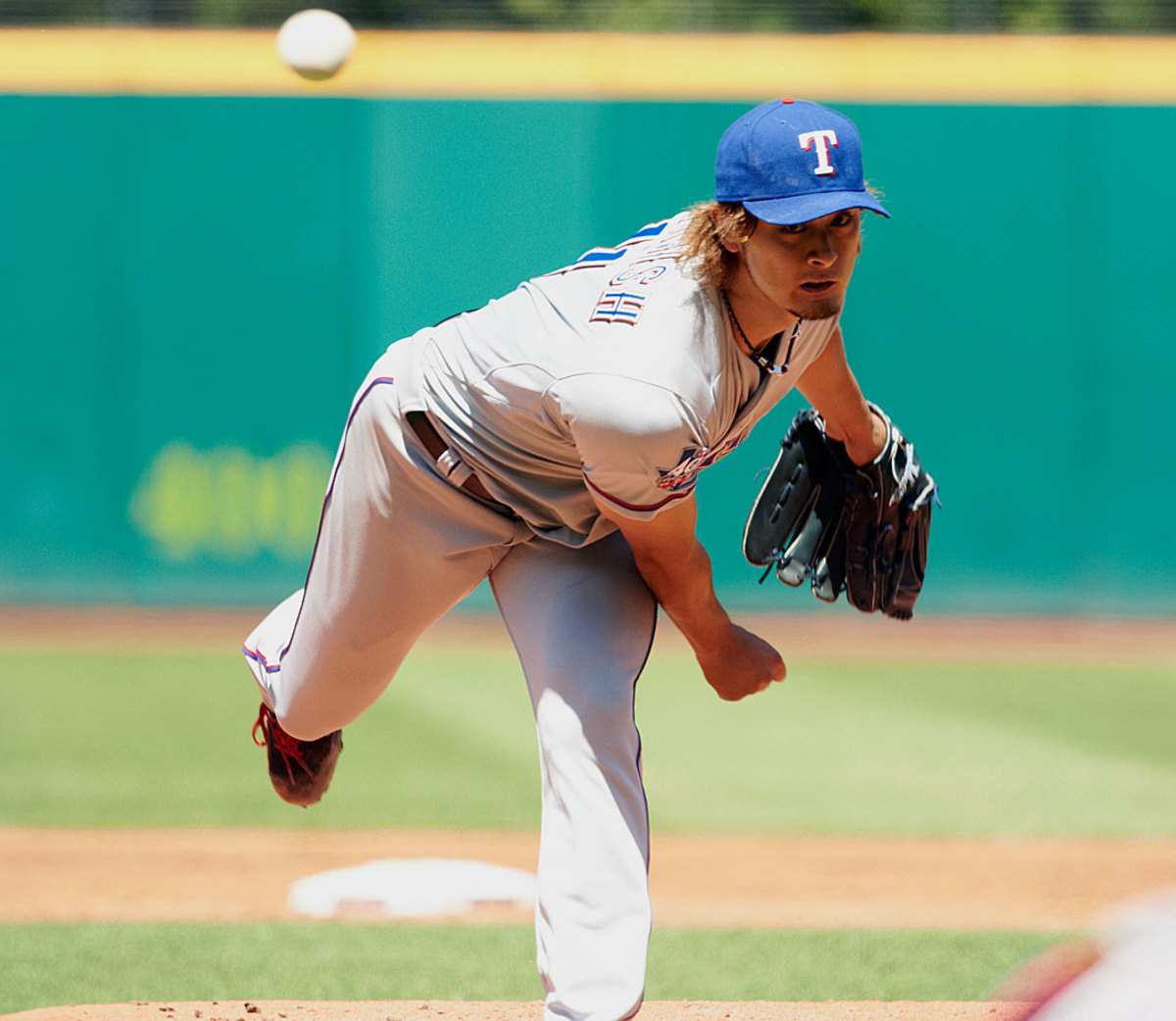
Texas got their money's worth after winning the exclusive negotiating rights to Darvish by committing a $51.7 million posting fee prior to the 2012 season. The Rangers' ace has been an all-star for three seasons straight. Darvish went 13-9 with a 2.83 ERA in 2013 and led the majors in strikeouts with 277 strikeouts in 209 2/3 innings.
No. 5: Hiroki Kuroda
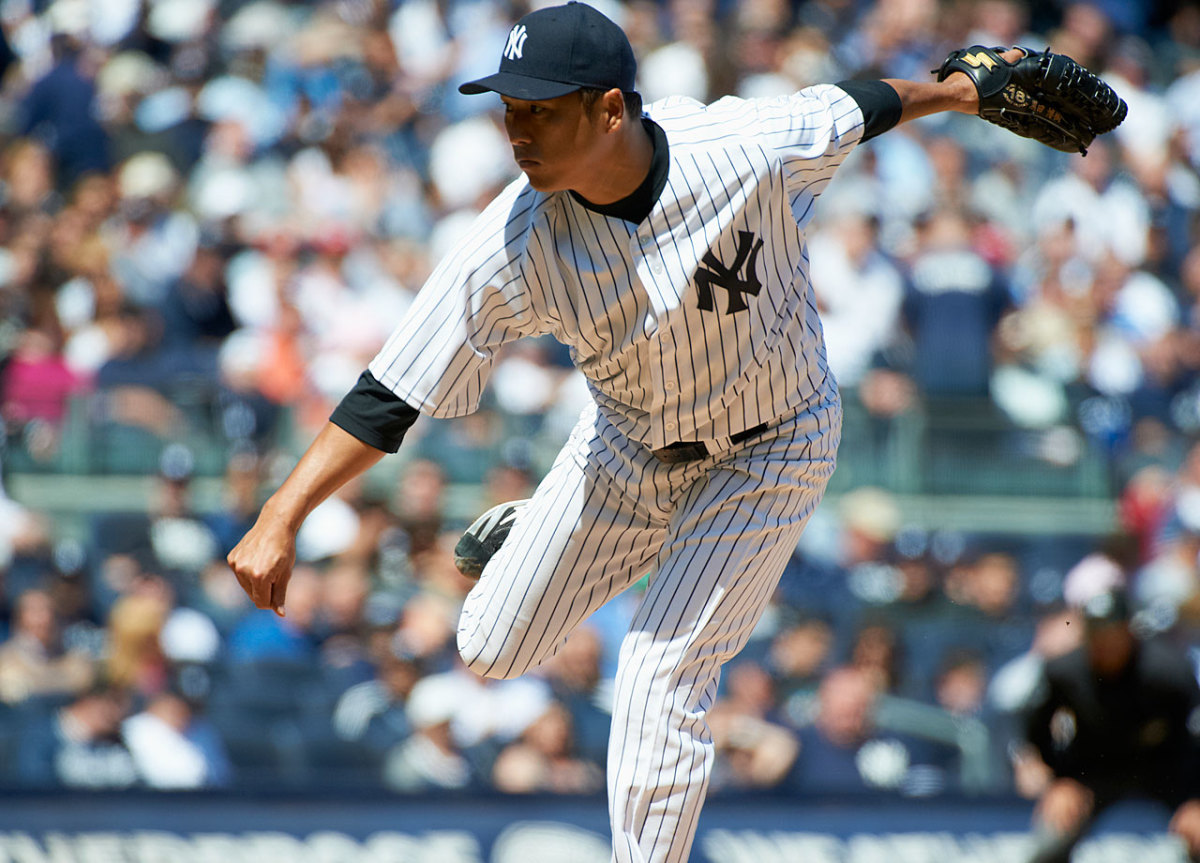
The Dodgers signed the right-handed pitcher as a free agent before the 2008 season, and were rewarded with four solid seasons in which Kuroda made more than 30 starts three times and had a 3.46 ERA. In his first season with the Yankees in 2012, Kuroda won a career-high 16 games and has been a consistent starter for New York since.
No. 6: Koji Uehara
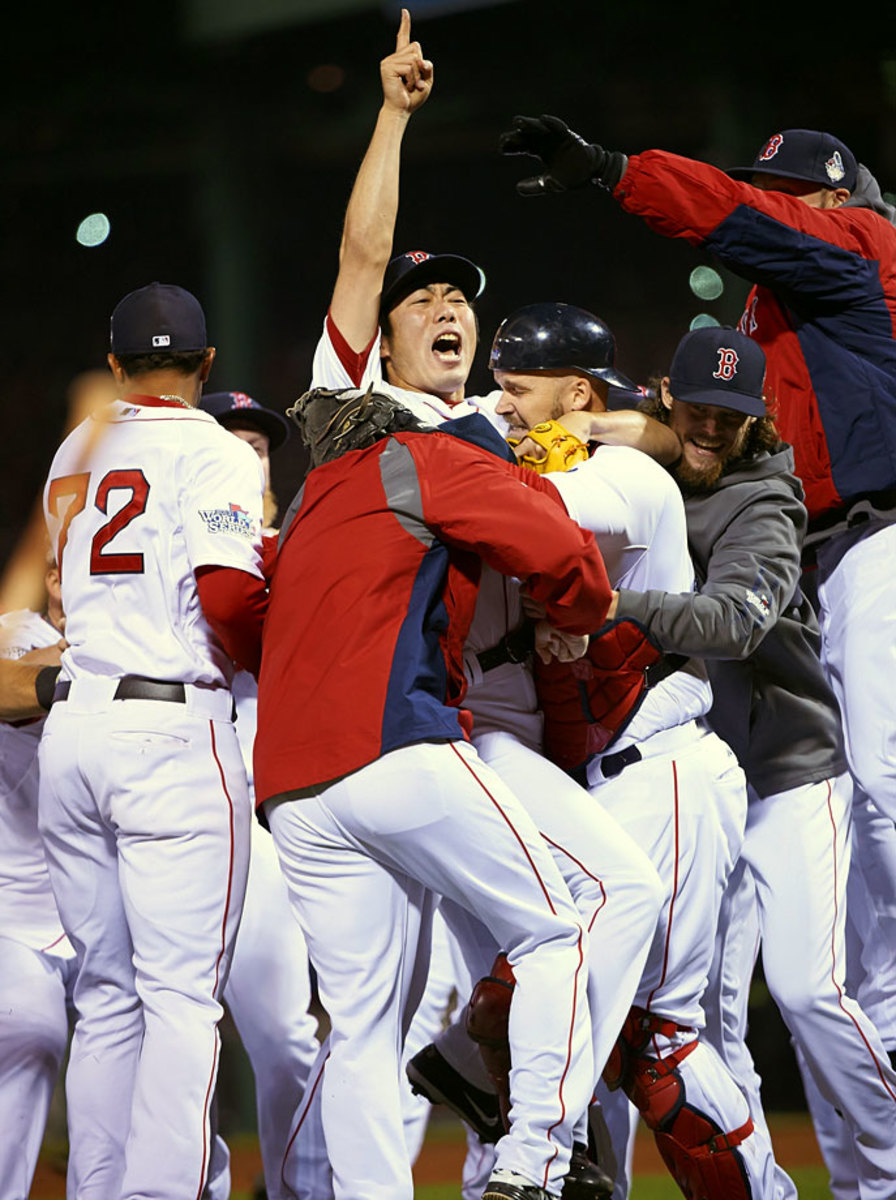
The pitcher had a chance to come to the United States in 1998, but he passed on a reported $3 million offer from the Angels to sign with the Yomiuri Giants. But in 2009, he signed with the Orioles and reached the major leagues. In 2011 he was traded to the Rangers at midseason and helped them win the AL West. In 2013 Uehara shined with Boston, posting a 1.09 ERA in 74.1 innings and later saving seven postseason games, winning the ALCS MVP award en route to the Red Sox World Series victory.
No. 7: Takashi Saito
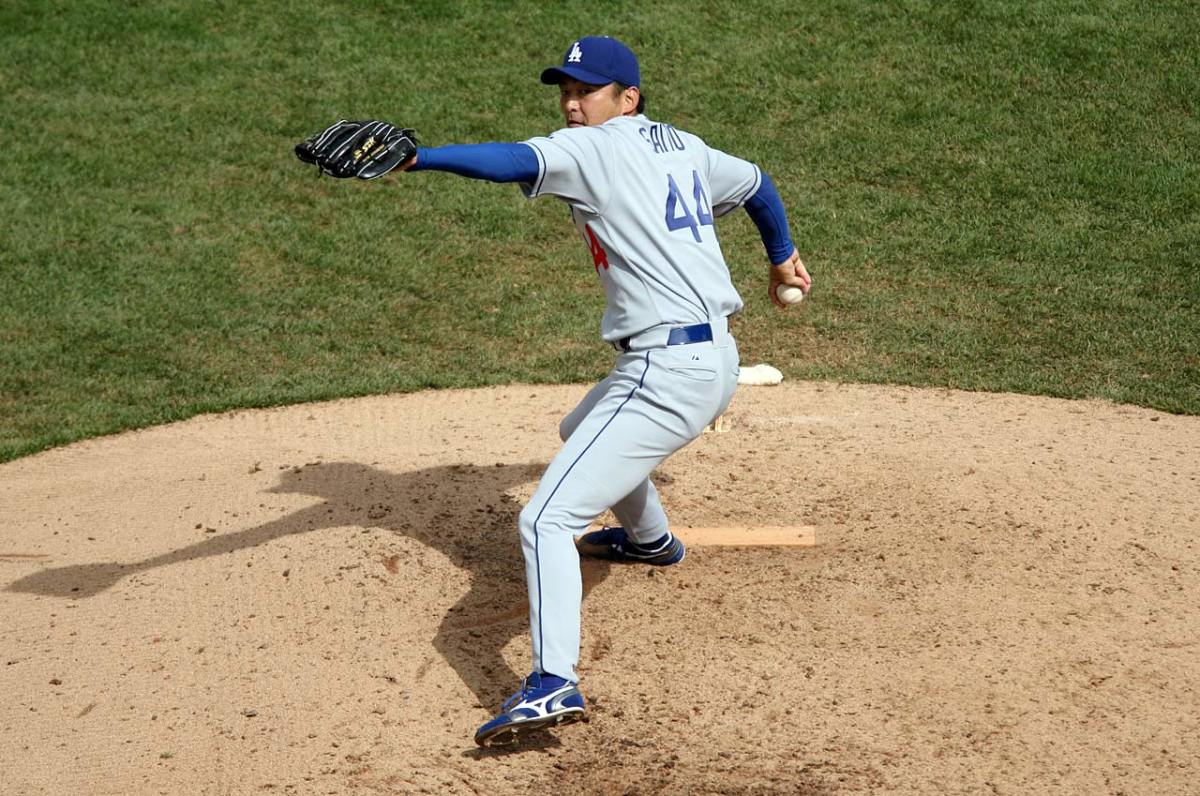
The Dodgers found a golden oldie in Saito, who as a 36-year-old rookie led the team in saves with 24 in 2006. In his first six MLB seasons, playing for four teams, he posted a 2.18 ERA and made the NL All-Star team in 2007.
No. 8: Shigetoshi Hasegawa
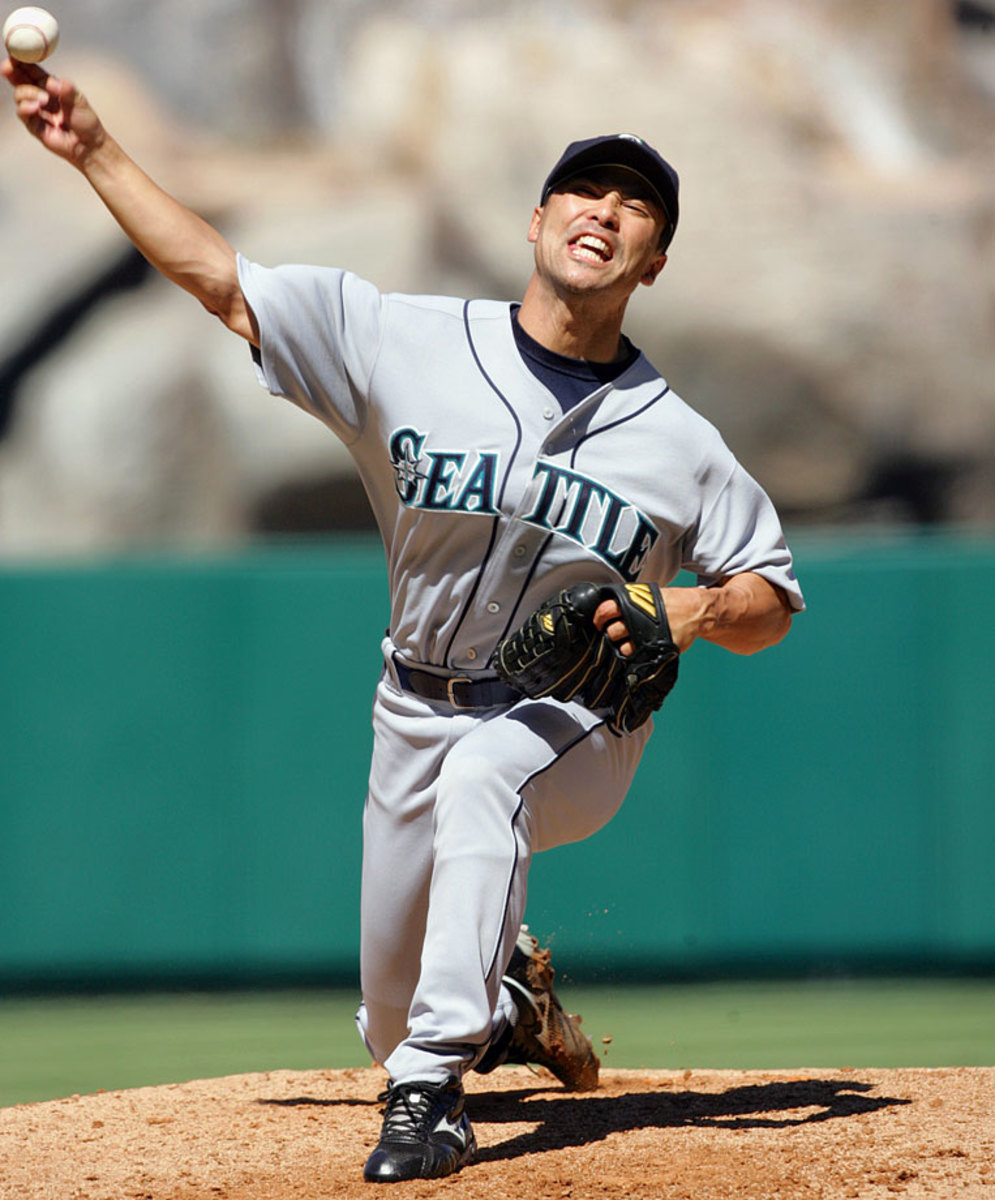
Coming on the heels of Nomo-mania, Hasegawa was the first player traded from Japan to the majors. Before the 1997 season, the Angels paid about $1 million to the Orix Blue Wave and $350,000 to Hasegawa, who was a starter in Japan but proved more useful as a reliever in the States, posting a 3.70 ERA in nine major league seasons.
No. 9: Daisuke Matsuzaka
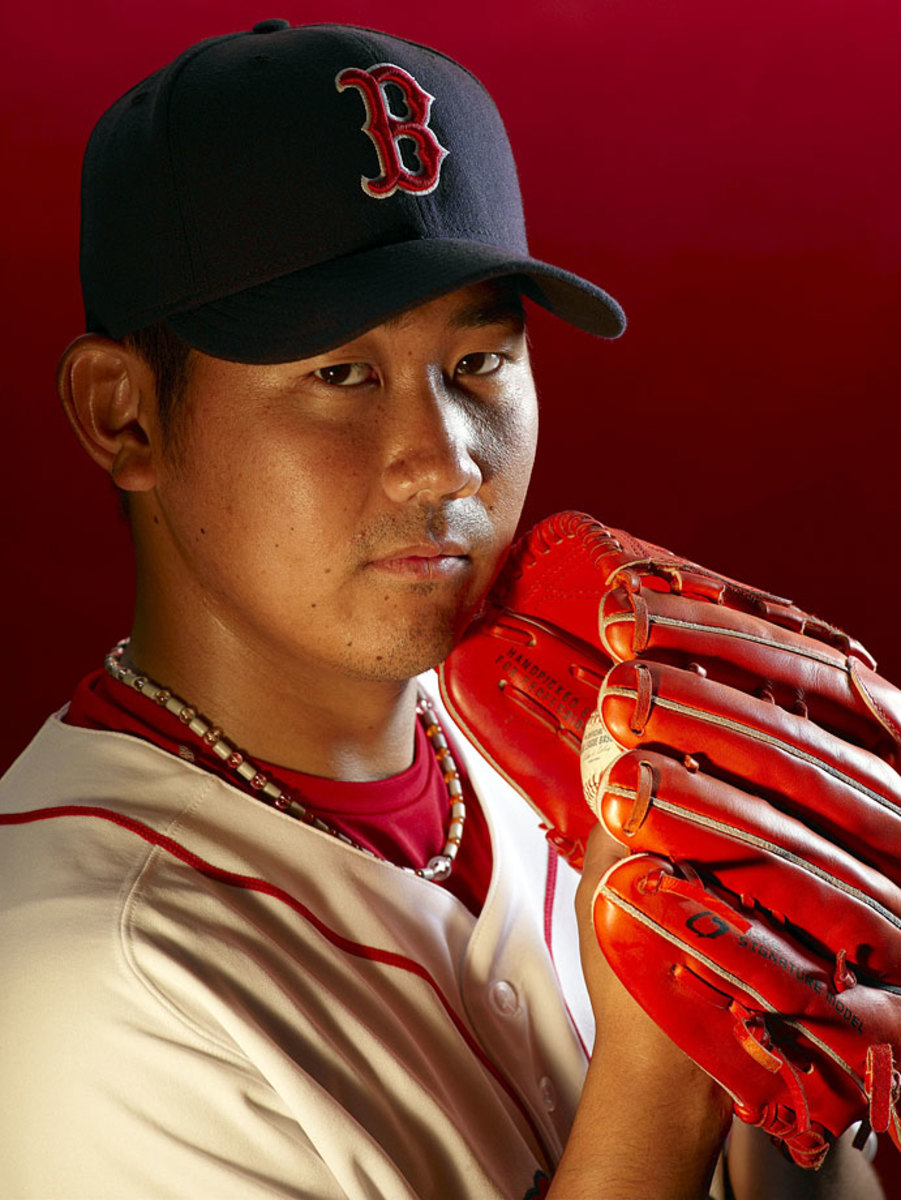
The Boston Red Sox shocked the baseball world by bidding $51.1 million for his services via the Japanese posting system and then signing the former Seibu Lions ace to a six-year, $52 million contract. He won 15 games as a rookie and 18 in his second season but won just 17 over the following four years while battling injuries and ineffectiveness.
No. 10: Tomo Ohka
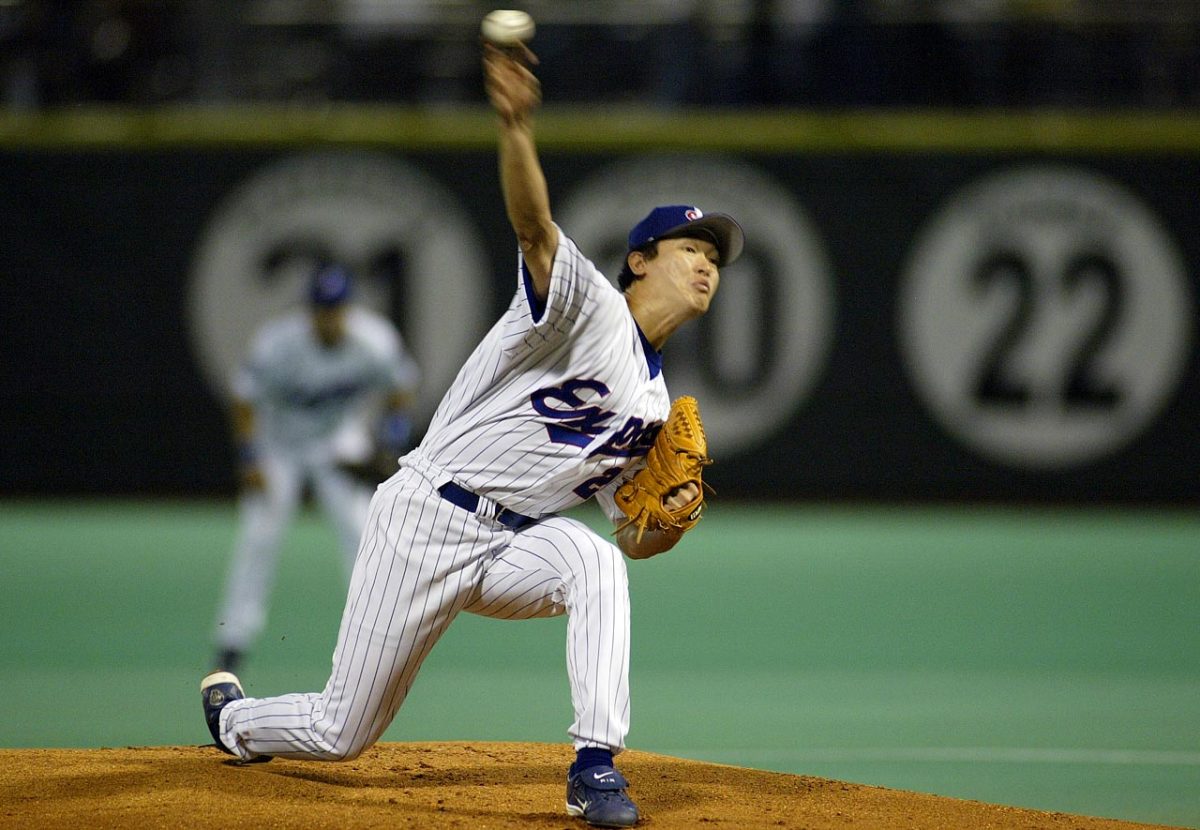
The Red Sox purchased the 22-year old Ohka from the Yokohama BayStars in Nov. 1998. He pitched for five teams in his 10 major league seasons, throwing 1,070 total innings and going 51-68.
